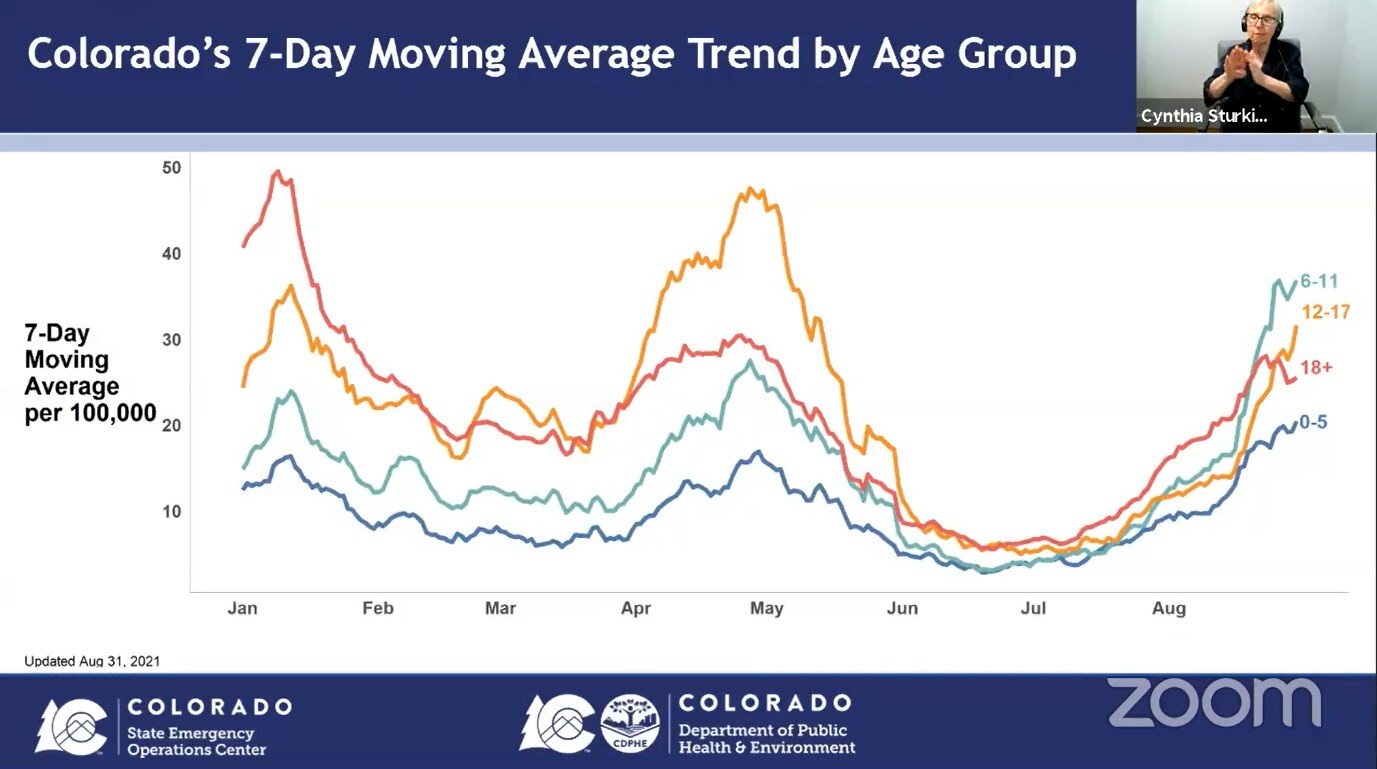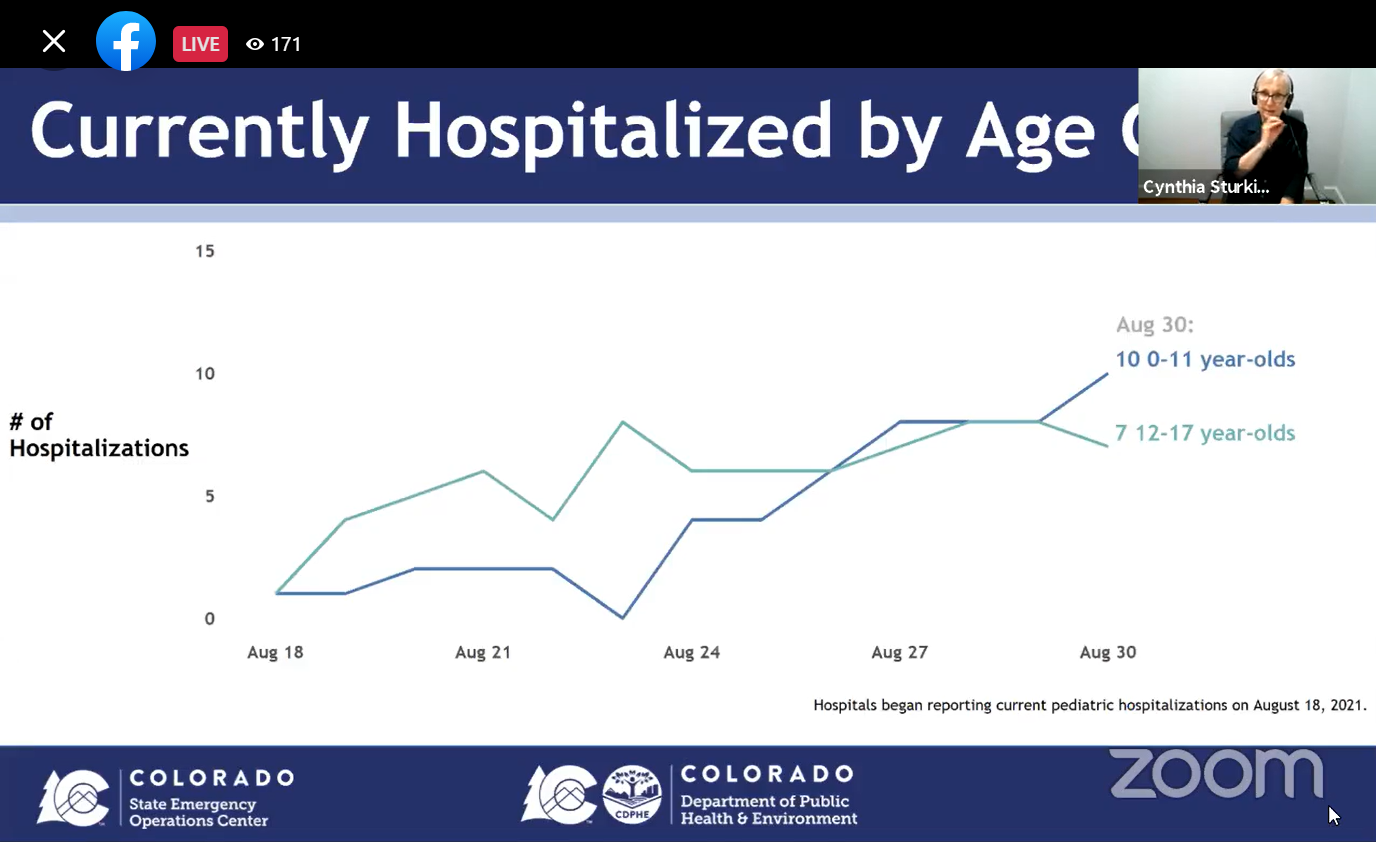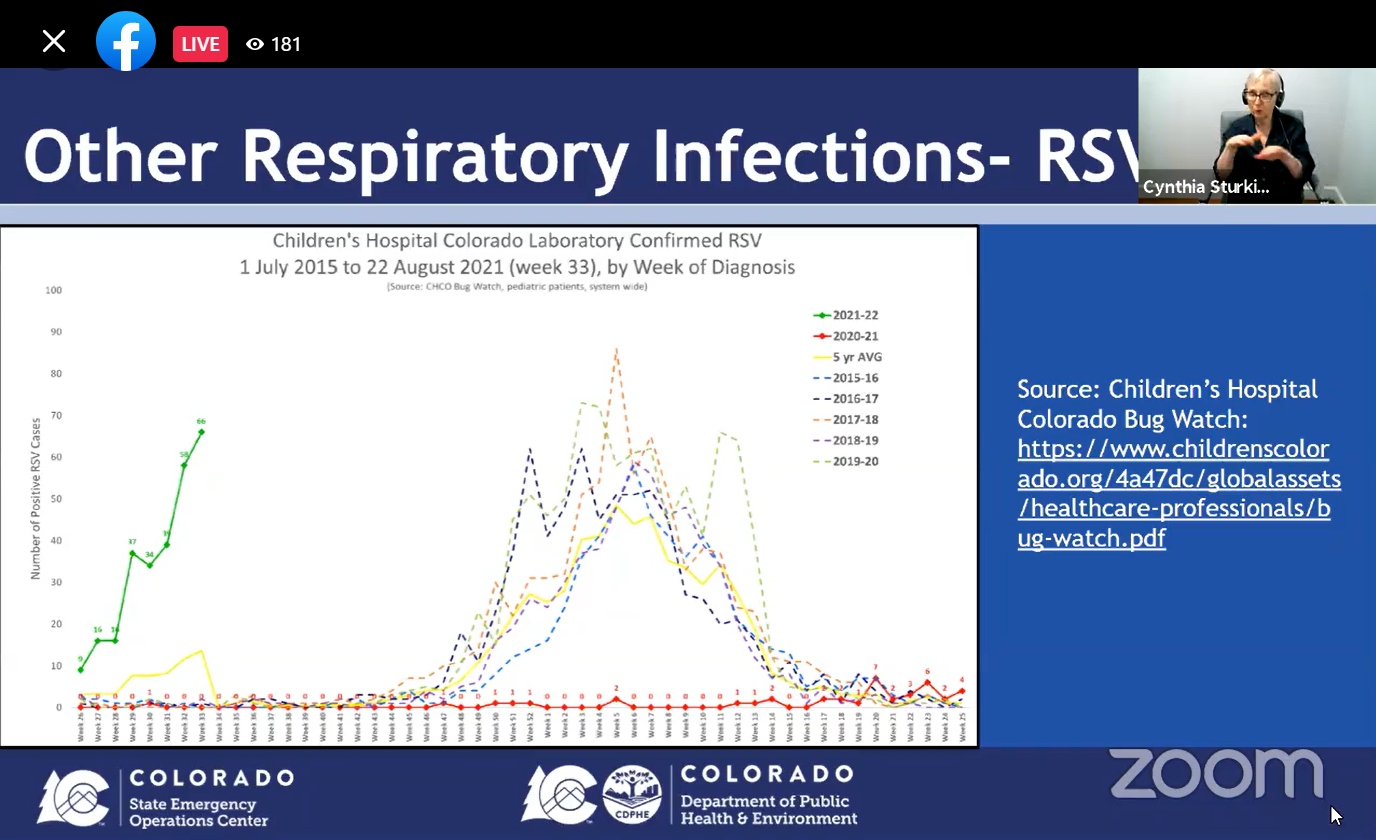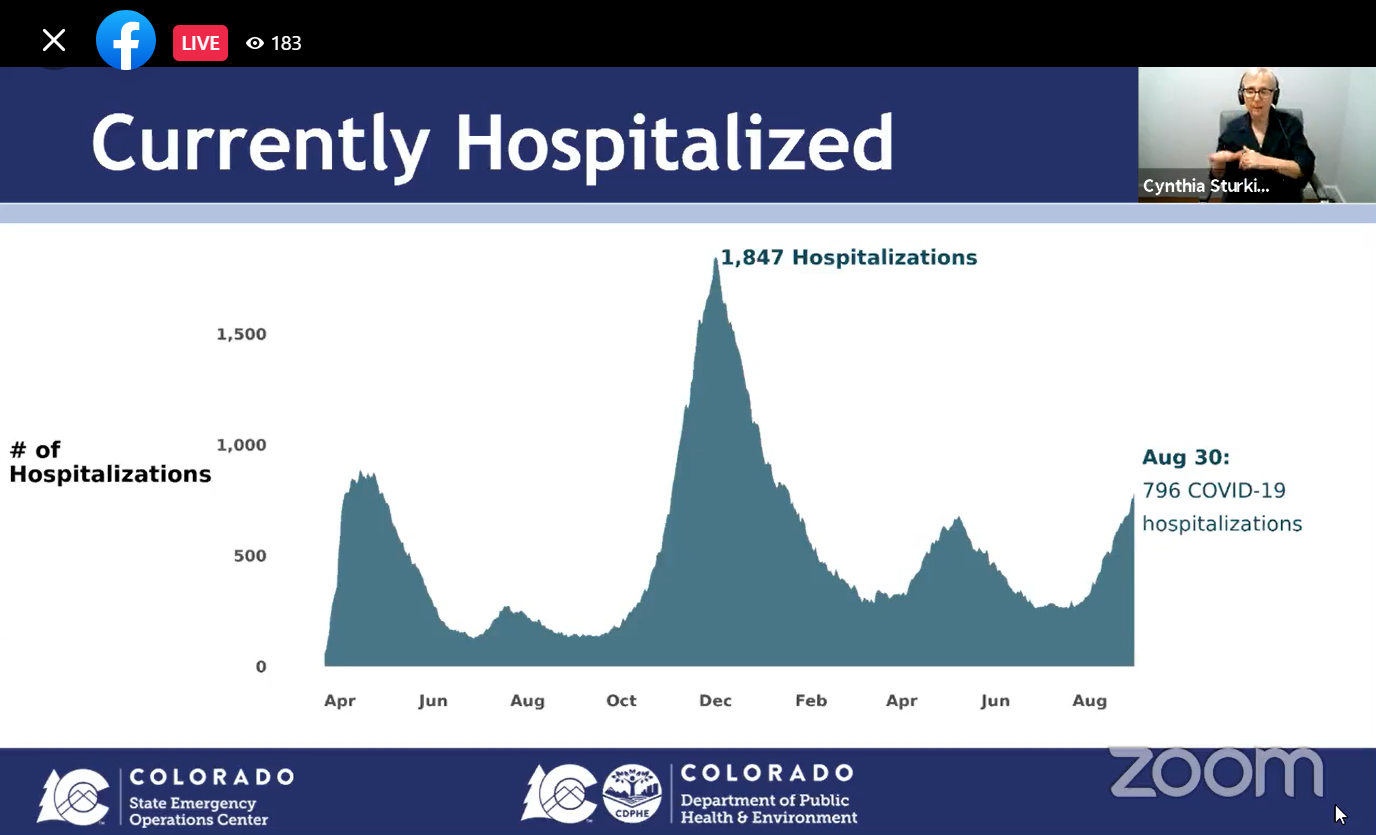Colorado children ages 6-11 experiencing highest rate of COVID-19 since the start of the pandemic

DENVER — COVID-19 cases are rising among Colorado children as school districts grapple with how to keep learning safe while continuing with in-person instruction.
New data from the Colorado Department of Public Health and Environment (CDPHE) show cases across all age groups have risen since the start of summer. The data also reveal the 6-11 age group is experiencing its the highest case rate since the start of the pandemic.

State epidemiologist Dr. Rachel Herlihy spoke during an Aug. 31 press conference about the increase.
"I think what right now stands out to me is that our children 6-11 years old and 12-17 years old is really where we're seeing the highest rate of disease transmission in the state," Herlihy explained. "And again this is really the first time in the pandemic we're really seeing this high rate in our younger children."
She went on to emphasize that this trend started in early July, before school began, and that there are several contributing factors to increased transmission rates. Herlihy said those other factors included travel, summer camps, sports and similar activities.
Still Herlihy made it clear: "Certainly we know school is contributing to increasing rates here."
While adults have been able to get the vaccine for months now, kids ages 12 and older have been eligible for a much shorter time. Younger kids still aren't able to get the vaccine, which many health experts call our greatest tool in this fight against COVID-19.
[Click here for fact sheets about the COVID-19 vaccine]
"I really think that our children who are unvaccinated are at a higher risk than they've ever been in the pandemic," Herlihy said. "This is a concerning trend that I think should be notable to all of us and certainly to parents right now."

CPDHE also released information showing an increase in COVID-19 hospitalizations among children. As of August 30, there were 796 people in hospitalized with the virus; 17 of those cases were pediatric. While children tend to not be as sick as others, Herlihy emphasized Coloradans need to be taking additional precautions to keep kids safe.
"Masks inside of schools are of course an incredible intervention but masks outside of schools are also important. That's something we need to be keeping in mind as our kids are out and about," Herlihy said.
Colorado isn't the only place seeing an increase in pediatric COVID-19 cases. The Delta variant is causing concerns, especially in parts of the country with low levels of vaccination and high levels of transmission.
COVID-19 at Children’s Hospital in New Orleans, for example, grew so intense this month that the state called in a federal “surge team” of emergency responders, as the New York Times reported.
"Now would not be the time to bring unvaccinated children to large gatherings and keeping in mind all of the things we were doing to really protect our kids a year ago," said Herlihy. "All of those social distancing strategies. Those things things continue to be important now."
Herlihy emphasized parents should not take just one approach to protect their kids. She recommending a multi-pronged approach including masks, testing, hand-washing, ventilation, etc.
On the testing front, the state is running a program available for all schools if they chose to opt-in.
Earlier this month, Governor Jared Polis announced the federally-funded testing program. It provides weekly, rapid-testing, potentially for all Colorado schools. The program officially starts in September, but in the Aug. 31 press conference CDPHE's Sarah Hamma announced 447 schools in 22 districts had already signed up for the program. There are a total of 178 districts in Colorado, making that number relatively low. CDPHE hopes to see even more schools sign up in the coming weeks and have set up this website to help.
There is also another concern with children's health Dr. Herlihy brought up: a spike in RSV cases. Respiratory Syncytial Virus, or RSV, is a common respiratory virus that usually causes mild, cold-like symptoms. Most people recover in a week or two, but RSV can be serious, especially for infants and older adults.

CDPHE shared the above graphic showing RSV this year compared to previous years going back to 2015. The bold green line on the left represents 2021 data, showing cases increasing much earlier than most years. Herlihy said it is not exactly known why this is happening, but one hypothesis is that low rates of RSV last year left kids more vulnerable earlier this year.
Herlihy went on to say that this could unfortunately be an indicator for what we might see this fall with influenza. That means we may see the flu come back much earlier this year, potentially creating a situation where kids have to fight COVID-19, RSV and the flu at the same time.
CDPHE continued to emphasize what the organization calls a "layered" approach to fighting COVID-19. That approach includes vaccination, if eligible, combined with testing, masking, hand-washing, ventilation and other practices we've all become very familiar with during the last 18 months.

Related Stories
Amanda Horvath is a multimedia producer with Rocky Mountain PBS. You can email her at amandahorvath@rmpbs.org.